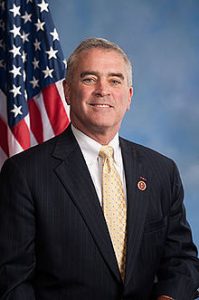
Rep. Brad Wenstrup
U.S. Rep. Brad Wenstrup (R-OH) said on March 4 that he introduced legislation that would help Americans find work and get off of welfare.
“I never want anyone to say they weren’t given the opportunity to work or get ahead,” Rep. Wenstrup said on Monday.
The Workforce Opportunity Realignment Kickstart (WORK) Act would reform the federal Temporary Assistance for Needy Families (TANF) program and align it with existing workforce development programs under the Workforce Innovation and Opportunity Act (WIOA), according to a summary provided by Rep. Wenstrup’s office.
Such coordination would end program silos, strengthen local partnerships and encourage workforce engagement, according to Rep. Wenstrup.
“Government assistance should be designed … to get people off the sidelines and into the workforce whenever possible,” the congressman said. “That’s what the WORK Act will do by integrating our welfare and workforce programs to ensure they are streamlined and optimized to help individuals find reliable jobs to provide for their families.”
According to the lawmaker’s office, the bill already has garnered support from several Ohio workforce leaders, including the Ohio Workforce Association (OWA).
“Here in Ohio, it has been difficult to fully integrate welfare and workforce programming because the federal government requires different measures and stipulates different goals,” OWA said in a statement. “We believe streamlining WIOA and TANF, as provided in this bill, will foster local flexibility and facilitate strong local partnerships that can put Ohioans on the path to self-sufficiency.”
Sherry Kelley Marshall, president and CEO of the Southwest Ohio Region Workforce Investment Board, agreed and said, “By aligning WIOA and TANF, and focusing on real outcomes, not ‘activities,’ this bill will help our TANF recipients in Hamilton County move beyond welfare and into meaningful work.”
Rosie Picklesimer, director of the Workforce Development Board #1, agreed, saying more flexibility is needed at the local level to better serve the TANF-eligible population. “That’s precisely what Representative Wenstrup’s WORK Act would do; it would give us the necessary flexibility to help families rise out of poverty,” she said.
If enacted, the bill also would coordinate TANF and WIOA metrics by holding state TANF agencies accountable for work outcomes similar to those used in WIOA, including employment, retention, median earnings, and education attainment, according to the summary.Additionally, the bill would permit state agencies to transfer up to 50 percent of their TANF grants to local workforce development boards and promote integrated state plans and program coordination, the summary says.



